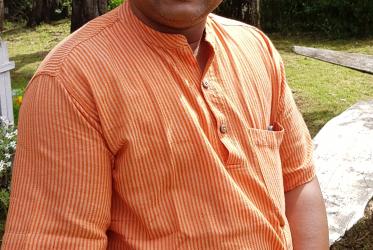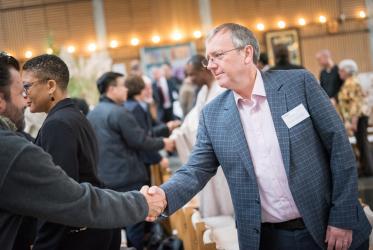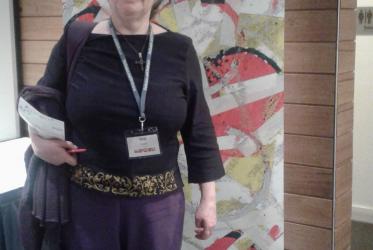Displaying 21 - 40 of 75
20 July 2018
WCC celebrates “living fellowship”
20 June 2018
Dr Samuel George: “Ensure all are included"
12 June 2018
Asian church leaders exchange ideas on diaconia
19 December 2017
The motor engineers of the ecumenical movement
18 September 2017
G7 must address famine
22 May 2017
Women’s mentoring focus of Thailand gathering
23 April 2017
“Overcoming economic injustice” vision of WCC’s Athena Peralta
23 February 2017
During Lent, a “carbon fast” can honour God’s creation
09 February 2017
Plans for 2017 decided by WCC Executive Committee
01 December 2016
A just financial and economic architecture is possible, students find
08 September 2016
Prayer and advocacy for Korean peace and reunification
04 August 2016
Religion: Way of war or path to peace?
30 June 2016











